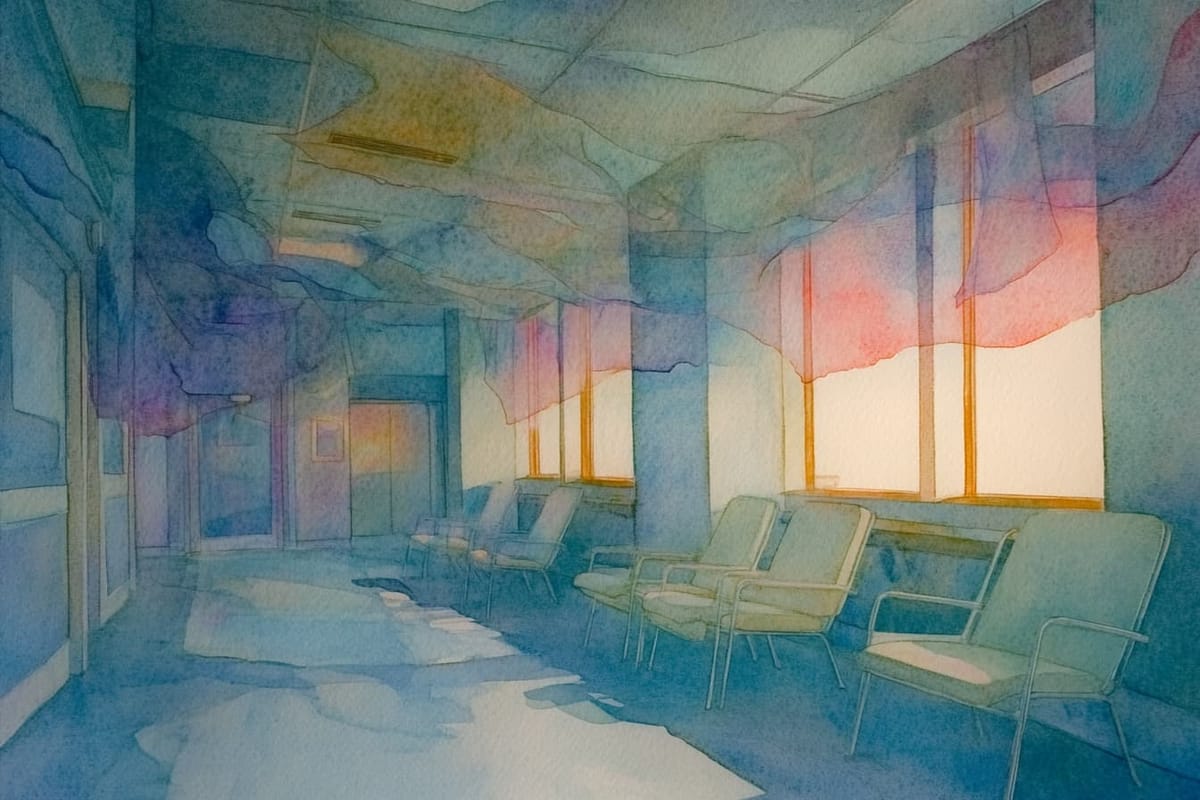Reflections On Medical Care
For the nurses watching over all of the patients like me, gratitude.

Recently, I asked Sue if she remembered the first time that we spoke.
“It was on the phone,” I said, “And I screamed at you.”
Sue is the perinatal bereavement coordinator at the hospital where I delivered Nelle and Iris, and also a labor and delivery nurse. While I was in labor with Nelle, her name came up over and over. “Sue’s not working today, but you should really talk to her.” The nurses, the social worker – everyone kept telling me that I should speak with her. My only thought was “Well she’s not here.” I was handed a folder of information on What To Do When Your Baby Dies. It included a list of funeral homes, information on depression, and a brochure about the hospital’s support group, SHARE. I threw the folder away.
A few days after I was discharged, I received a phone call. I was at home, without my baby. My big kids were in school. Ger may have even been back at work, I don’t remember. But I was out in our sunroom when my phone rang.
“This is Sue.” She went on to tell me how she worked with moms who had lost their babies. She wanted to know how I was doing, and if there was anything more the staff could do for me.
“YES THERE IS SOMETHING MORE YOU COULD HAVE DONE,” I screamed. “I AM LACTATING AND NO ONE TOLD ME THAT COULD HAPPEN.” I started crying.
I do not remember anything else she said, other than that she was sorry no one had told me that I could lactate after losing my baby. She told me about the SHARE program, but I wasn’t listening. I thought that no one else could possibly understand my pain, even other parents that had lost babies. I hung up.
It took me a year to attend my first SHARE meeting, and I only went to one. After losing Iris, I was handed the same packet of information. This time, I didn’t throw it away, but I shoved it in a drawer. After a few months, I requested access to the private Facebook group. I attended the one meeting, and was so drained listening to parents talk about their losses that I didn’t go back.
It wasn’t until my pregnancy with Autumn that I began to attend Sharing HOPE (Having Optimistic Pregnancy Expectations) meeting. Through those meetings, I began to know Sue better and her tireless efforts to support bereaved parents and educate the wider community about pregnancy and infant loss. Most importantly, her ongoing mission to help parents honor the babies that they lost.
Earlier this week, I spoke on a panel that Sue organizes for new hospital staff, talking to them about what it is like to be a patient who will not be bringing her baby home. I have done this several times before, and find that every time, I say something a bit different. Each time, a different detail seems to matter. This time, I told the group about that first phone call with Sue, and how I had screamed at her, and refused to answer most of the questions she asked me about how I was doing.
“I tell you this,” I said to the group “Because I want you to know that how we react, and what we may say at the time, is not indicative at all of how we feel about the care that you are providing, or how we may look back on it in the future.”
In honor of National Nurses Week, here’s to all of the labor and delivery nurses that sit by the sides of mothers experiencing the worst moments of their lives. For holding hands. For holding those precious babies, if only for a few moments until they are carried away, or helping the parents who want to see their children. For giving them baths, wrapping them in blankets, or taking photos. For holding it together in a way that I can’t even fathom. For gentleness and compassion and strength.
For the nurses watching over all of the patients like me, gratitude.
